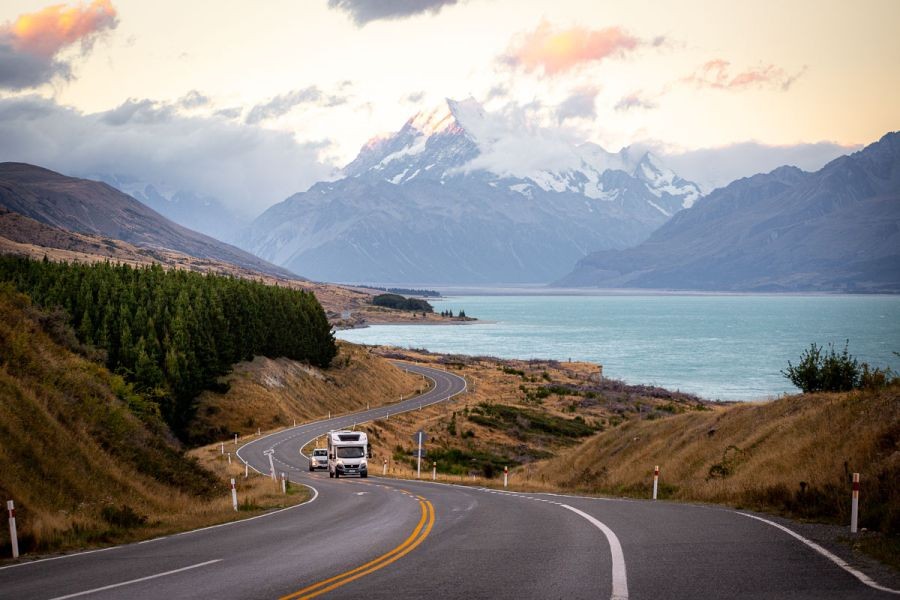In recent years, the allure of New Zealand's breathtaking landscapes has drawn millions of tourists seeking unique experiences in natural settings. Yet behind the scenes, a pivotal transformation is taking place—sustainable tourism is reshaping how New Zealand balances economic growth with environmental preservation. This shift is not just a trend; it's an essential evolution that impacts local economies, industries, and policies. As a corporate lawyer, understanding these dynamics is crucial to advising businesses that operate in this space.
The Rise of Sustainable Tourism in New Zealand
New Zealand's tourism industry, a significant contributor to the national economy, is undergoing a transformation. According to Stats NZ, tourism accounted for 5.8% of the GDP in 2019, highlighting its economic importance. However, the focus is now shifting towards sustainable tourism, which aims to minimize environmental impacts while maximizing socio-economic benefits.
One real-world example of this shift can be seen in the initiatives undertaken by the New Zealand government. The Ministry of Business, Innovation and Employment (MBIE) has introduced several programs to encourage sustainable practices among tourism operators, including grants for eco-friendly infrastructure and incentives for businesses that reduce their carbon footprint. These efforts align with New Zealand's broader commitment to achieving net-zero carbon emissions by 2050.
Case Study: The Regenerative Tourism Model
One exemplary case is the regenerative tourism model implemented by the town of Kaikoura. This coastal town, known for its marine life and stunning landscapes, faced a significant challenge after a devastating earthquake in 2016. The local tourism industry had to adapt quickly to survive.
Problem: Post-earthquake, Kaikoura's tourism was severely affected, with infrastructure damage leading to a decline in visitor numbers.
Action: The town embraced regenerative tourism by investing in sustainable infrastructure and community-led conservation projects. The local government worked closely with businesses to promote eco-friendly practices, such as using renewable energy sources and reducing waste.
Result: Within three years, Kaikoura's tourism industry not only recovered but also attracted a more environmentally-conscious demographic. Visitor numbers increased by 30%, and the town's carbon footprint reduced by 25%.
Takeaway: This case study demonstrates the power of regenerative tourism in revitalizing communities while preserving natural resources. New Zealand businesses can learn from Kaikoura's approach to enhance their sustainability initiatives.
Data-Driven Analysis: The Economic Impact
Sustainable tourism has far-reaching economic implications. According to a report by the Reserve Bank of New Zealand, integrating sustainable practices can lead to increased revenue by attracting eco-conscious tourists willing to pay a premium for sustainable experiences. Moreover, sustainable tourism creates jobs, from eco-tourism operators to conservation experts, further stimulating the economy.
The challenge lies in balancing growth with environmental responsibility. While sustainable tourism can boost local economies, it requires significant investment in infrastructure and training. However, the long-term benefits often outweigh the initial costs, positioning New Zealand as a leader in sustainable tourism globally.
Pros vs. Cons of Sustainable Tourism
Implementing sustainable tourism practices comes with its set of advantages and challenges.
Pros:
- Higher Revenue: Sustainable tourism attracts high-value tourists willing to pay more for unique, eco-friendly experiences.
- Environmental Preservation: Reduces the ecological footprint and promotes conservation efforts.
- Community Benefits: Generates local employment and supports community-based projects.
Cons:
- Initial Costs: Requires upfront investment in sustainable infrastructure and training.
- Regulatory Challenges: Compliance with environmental regulations can be complex and costly.
- Market Variability: Success depends on market demand for sustainable tourism, which can fluctuate.
Common Myths & Mistakes
Myth: "Sustainable tourism is too expensive for small businesses."
Reality: While initial costs can be higher, sustainable practices often lead to long-term savings through reduced resource consumption and higher revenue from eco-conscious tourists.
Myth: "Sustainable tourism doesn't have a significant impact on the environment."
Reality: Research shows that sustainable tourism can reduce carbon emissions by up to 40% compared to traditional tourism models (Source: MBIE).
Myth: "All tourists prefer luxury over sustainability."
Reality: A growing segment of tourists prioritize sustainability over luxury, seeking authentic, eco-friendly experiences.
Future Trends & Predictions
As the world continues to grapple with climate change, sustainable tourism will become increasingly important. By 2030, it's predicted that over 50% of New Zealand's tourism offerings will be sustainable, driven by both consumer demand and regulatory pressures. This trend will likely lead to innovations in eco-friendly accommodations, transportation, and activities.
Moreover, as technology advances, expect to see more smart solutions integrated into sustainable tourism, such as AI-driven personalized travel itineraries and virtual reality experiences that minimize physical impact on natural sites.
Conclusion: Final Takeaway & Call to Action
Sustainable tourism is not just a trend but a necessity for New Zealand's future. By embracing sustainable practices, businesses can protect the environment, support local communities, and drive economic growth. As a corporate lawyer, advising clients on integrating these practices can position them as leaders in this evolving industry.
If you're ready to explore the potential of sustainable tourism, consider how your business can adopt eco-friendly practices today. Engage in discussions, share your insights, and contribute to New Zealand's journey towards a sustainable future.
People Also Ask (FAQ)
- How does sustainable tourism impact New Zealand's economy?Sustainable tourism boosts local economies by attracting eco-conscious tourists and creating jobs in conservation and eco-tourism sectors.
- What are the biggest misconceptions about sustainable tourism?Many believe it's too costly for small businesses, but long-term savings and increased revenue often outweigh initial expenses.
- What upcoming changes in New Zealand could affect sustainable tourism?By 2026, policy updates may require all tourism operators to meet specific sustainability criteria, reshaping the industry landscape.
Related Search Queries
- Sustainable tourism impact on New Zealand economy
- New Zealand eco-friendly travel trends
- Regenerative tourism examples in NZ
- Environmental policies for NZ tourism industry
- Future of tourism in New Zealand

































BrooksClub
10 months ago